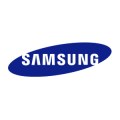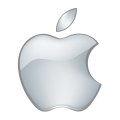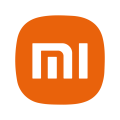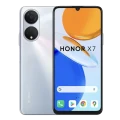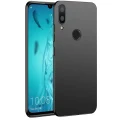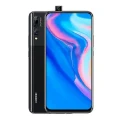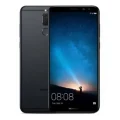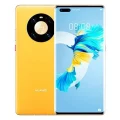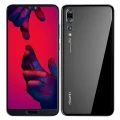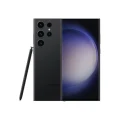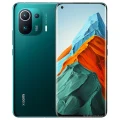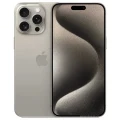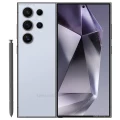- Awesome page
- Latest Mobile
- Smartphones
- Google Pixel 6 Pro
Google Pixel 6 Pro
Google Pixel 6 Pro Price in Bangladesh
The Google Pixel 6 Pro Price in Bangladesh is BDT 52,000, available in three variants: 12GB of RAM with 128GB, 256GB, or 512GB of storage. This smartphone features a 5003mAh battery with 30W fast charging for efficient power management. It runs on Android 12 and is powered by the Google Tensor (5 nm) chipset, ensuring high performance and advanced features. The Google Pixel 6 Pro Price in Bangladesh reflects its premium specifications and capabilities, making it a top choice for those seeking a high-end device.
Specifications
General
| Model | Google Pixel 6 Pro |
| Announced | 2021, October 19 |
| Released | 2021, October 28 |
| Status | Available |
| Unofficial price | 12GB 28GB ৳52,000 |
Design
| Dimensions | 163.9 x 75.8 x 8.9 mm (6.45 x 2.98 x 0.35 in) |
| Weight | 210 g (7.41 oz) |
| Colors |
Cloudy White, Sorta Sunny, Stormy Black |
Network
| Technology | GSM / CDMA / HSPA / EVDO / LTE / 5G |
| 2G Network |
GSM 850 / 900 / 1800 / 1900 CDMA 800 / 1700 / 1900 |
| 3G Network |
HSDPA 850 / 900 / 1700(AWS) / 1900 / 2100 CDMA2000 1xEV-DO |
| 4G Network |
1, 2, 3, 4, 5, 7, 8, 12, 13, 14, 17, 18, 19, 20, 25, 26, 28, 29, 30, 32, 38, 39, 40, 41, 42, 46, 48, 66, 71 |
| 5G Network |
1, 2, 3, 5, 7, 8, 12, 28, 41, 66, 71, 77, 78, 258, 260, 261 Sub6/mmWave - GD1YQ 1, 2, 3, 5, 7, 8, 12, 28, 41, 66, 71, 77, 78 Sub6 - GTT9Q |
| GPRS <strong>GPRS</strong> (General Packet Radio Service) is a packet oriented mobile data service on the 2G and 3G cellular communication system's global system for mobile communications (GSM), Generally, GPRS is used for the purpose of wireless data transfer, such as sharing pictures and videos or browsing the Internet via a mobile phone connection. | |
| EDGE <strong>EDGE</strong> (Enhanced Data GSM Environment) is a wireless network technology generally considered the next step in the 2G network offers data transfer rates up to four times faster than ordinary GSM networks, Generally, EDGE is used for the purpose of wireless data transfer, such as sharing pictures and videos or browsing the Internet via a mobile phone connection. | |
| Speed | HSPA 42.2/5.76 Mbps, LTE-A (CA), 5G |
Display
| Display Type <strong>Display Technology => </strong> A number of display technologies and types used in mobile phones => TFT (Thin Film Transistor), IPS (In-Place Switching), OLED (Organic Light Emitting Diode), AMOLED (Active-Matrix Organic Light-Emitting Diode), Super AMOLED (an even advanced version of AMOLED), Resistive Touchscreen (Resistive touchscreens contain two layer of conductive material with a very small gap between them which acts as a resistance), Capacitive Touchsceen (Capacitive touchscreen technology consists of a layer of glass coated with a transparent conductor) | LTPO AMOLED capacitive touchscreen, 16M colors |
| Size | 6.71 inches, 110.5 cm2 (~88.8% screen-to-body ratio) |
| Resolution | 1440 x 3120 pixels, 19.5:9 ratio (~512 ppi density) |
| Features |
Corning Gorilla Glass Victus 120Hz, HDR10+ Always-on display |
Camera
Main camera
| Camera Setup | Triple |
| Primary <strong>Camera</strong> is able to capture photographs and usually videos, The most important characteristics of a camera are the resolution (measured in megapixels), lens focus type (fixed or automatic), higher megapixel cameras are known to capture higher quality photos, but not always a good measurement of the photos quality. |
50 MP, f/1.9, 26mm (wide), 1/1.31&quot;, 1.2µm, omnidirectional PDAF 48 MP, f/3.5, 104mm (telephoto), 1/2&quot;, 0.8µm, Laser AF, OIS, 4x optical zoom 12 MP, f/2.2, 114˚ (ultrawide), 1.25µm |
| Features |
Dual-LED flash, Pixel Shift, Auto-HDR, panorama |
| Video | 4K@30/60fps, 1080p@30/60/120/240fps; gyro-EIS |
Selfie camera
| Camera Setup | Single |
| Primary <strong>Camera</strong> is able to capture photographs and usually videos, The most important characteristics of a camera are the resolution (measured in megapixels), lens focus type (fixed or automatic), higher megapixel cameras are known to capture higher quality photos, but not always a good measurement of the photos quality. |
11.1 MP, f/2.2, 20mm (ultrawide), 1.22µm |
| Features |
Auto-HDR |
| Video | 4K@30fps, 1080p@30/60fps |
Hardware
| Chipset <strong>Chipset</strong> is a group of integrated circuits designed to perform one or a more dedicated functions, often with real time computing constraints, Popular smartphones are equipped with more advanced embedded chipsets that can do many different tasks depending on their programming. | Google Tensor (5 nm) |
| CPU <strong>CPU</strong> (Central Processing Unit) mostly known as processors, CPU processes instructions in order to carry out certain functions that make your device operate properly. Processors are often described as the brain of computers, smartphones and tablets, Smartphones and tablets rely on processors to carry out their every task, Processors are an incredibly important factor in selecting any type of computing device, including your smartphone. | Octa-core (2x2.80 GHz Cortex-X1 & 2x2.25 GHz Cortex-A76 & 4x1.80 GHz Cortex-A55) |
| GPU <strong>GPU</strong> (Graphics Processing Unit) is a single-chip processor designed to rapidly manipulate and alter memory to accelerate the creation of images in a frame buffer intended for output to a display, This includes things such as lighting effects, object transformations, and 3D motion. | Mali-G78 MP20 |
| RAM (Memory) <strong>RAM</strong> (Random Access Memory) is a type of computer memory that can be accessed randomly, any byte of memory can be accessed without touching the preceding bytes that allows information to be stored and accessed quickly from random locations. RAM is the most common type of memory found in computer systems, smartphones, tablets and other electronic devices. | 12 GB |
| Internal Storage <strong>Internal Storage</strong> is a data storage space (flash memory) mostly used in smartphones, tablets and other electronic devices where operating system, apps, music, photos, videos, files and other user data Is stored. | 128/256/512 GB UFS 3.1 |
| Sensors <strong>Sensors</strong> are electronic components that detects and responds to some type of input from the physical environment. The specific input could be light, heat, motion, moisture, pressure and location, The output is generally a signal that is converted to use in computing systems, a location sensor, such as a GPS receiver is able to detect current location of your electronic device. |
Fingerprint (under display, optical), accelerometer, gyro, proximity, compass, barometer Ultra Wideband (UWB) support |
Connectivity
| Bluetooth <strong>Bluetooth</strong> is a wireless communications technology for exchanging data between mobile phones, headsets, computers and other network devices over short distances without wires, Bluetooth technology was primarily designed to support simple wireless networking of personal consumer devices. | 5.0, A2DP, LE, aptX HD |
| Infrared <strong>Infrared</strong> connectivity is an old wireless technology used to connect two electronic devices. It uses a beam of infrared light to transmit information and so requires direct line of sight and operates only at close range. | |
| USB | USB Type-C 3.1 |
| GPS <strong>GPS</strong> The Global Positioning System is a satellite-based radio navigation system, GPS permits users to determine their position, velocity and the time 24 hours a day, in all weather, anywhere in the world, In order to locate your position, your device or GPS receiver must have a clear view of the sky. | Yes, with dual-band A-GPS, GLONASS, GALILEO, QZSS, BDS |
| NFC <strong>NFC</strong> (Near field communication) is a set of standards for smartphones and similar devices to establish peer-to-peer radio communications with each other by touching them together or bringing them into proximity, usually no more than a few inches. |
Battery
| Battery Type <strong>Battery Type => </strong> Cell phones run on various kinds of batteries depending on the manufacturer, phone size or shape and features. There are basically four types of cell phone batteries => Lithium Polymer, Lithium Ion, Nickel Metal Hydride and Nickel Cadmium. | Non-Removable Li-Po |
| Capacity <strong>Battery Capacity</strong> is a measure (typically in Amp-hr) of the charge stored by the battery, and is determined by the mass of active material contained in the battery. The battery capacity represents the maximum amount of energy that can be extracted from the battery under certain conditions. | 5003 mAh |
| Charging Charging | Fast charging 30W, 50% in 30 min (advertised) Fast wireless charging 23W Reverse wireless charging USB Power Delivery 3.0 |
Google Pixel 6 Pro Review: Innovation Meets Excellence in a Single Device
The tech world has been buzzing about the Google Pixel 6 Pro, and for good reason. This flagship device promises an array of cutting-edge features and significant improvements over its predecessors. From its sleek design to its powerful performance, the Pixel 6 Pro is poised to set new standards in the smartphone industry.
In this comprehensive review, we will explore what makes the Google Pixel 6 Pro stand out. We’ll cover its design, camera capabilities, performance, battery life, software experience, and overall value. Whether you’re a tech enthusiast, a loyal Google fan, or someone simply looking for a new smartphone, this review will provide you with all the insights you need to make an informed decision.
Design and Build Quality
Aesthetics and Materials
The Google Pixel 6 Pro boasts a fresh and modern design that instantly catches the eye. The device features a unique two-tone finish that adds a touch of elegance and sophistication. The materials used include a glass front and back, combined with an aluminum frame, ensuring both durability and a premium feel.
Ergonomics and Comfort
One of the standout aspects of the Pixel 6 Pro is its ergonomic design. Despite its large 6.7-inch display, the phone feels comfortable to hold, thanks to its well-balanced weight distribution and rounded edges. The placement of buttons and ports is intuitive, making one-handed operation relatively easy, even for a device of this size.
Durability
Durability is a crucial factor for any high-end smartphone, and the Pixel 6 Pro does not disappoint. The device is equipped with Corning Gorilla Glass Victus, providing robust protection against scratches and minor drops. Additionally, it has an IP68 rating for dust and water resistance, ensuring that it can withstand everyday wear and tear.
Camera and Photography Experience
Camera Setup
The Pixel 6 Pro features an impressive camera setup that includes a 50MP primary sensor, a 12MP ultra-wide sensor, and a 48MP telephoto lens. This combination offers a versatile photography experience, allowing users to capture detailed shots in various scenarios, from expansive landscapes to close-up portraits.
Software Innovations
Google’s prowess in artificial intelligence is evident in the Pixel 6 Pro’s camera software. The device leverages AI to enhance photo quality, offering features like Night Sight for low-light photography and Super Res Zoom for improved digital zoom capabilities. Additionally, the new Magic Eraser tool allows users to remove unwanted objects from their photos seamlessly.
Photo and Video Quality
When it comes to photo and video quality, the Pixel 6 Pro excels. The primary sensor captures stunningly detailed images with vibrant colors and excellent dynamic range. The ultra-wide lens offers minimal distortion, while the telephoto lens enables impressive zoom capabilities. Video recording is equally impressive, with 4K resolution at 60fps, providing smooth and sharp footage.
Performance and Battery Life
Speed and Responsiveness
Under the hood, the Pixel 6 Pro is powered by Google’s custom-built Tensor chip, designed to deliver exceptional performance. The device handles multitasking with ease, running multiple apps smoothly without lag. Gaming performance is top-notch, ensuring a seamless experience even with graphics-intensive games.
Battery Endurance
Battery life is a critical aspect of any smartphone, and the Pixel 6 Pro delivers in this department. The device is equipped with a 5,000mAh battery, offering all-day battery life even with heavy usage. The inclusion of fast charging and wireless charging capabilities adds to the convenience, allowing users to quickly recharge their device.
Comparison with Other Flagships
When compared to other flagship devices, the Pixel 6 Pro holds its own. Its performance is on par with, if not better than, competitors like the iPhone 13 Pro and Samsung Galaxy S21 Ultra. The combination of the Tensor chip and Android 12 ensures a fluid and responsive user experience that stands out in the crowded smartphone market.
Pixel 6 Pro Software
Android 12 Experience
The Pixel 6 Pro comes with Android 12 out of the box, offering a clean and intuitive user interface. The new Material You design language allows for extensive customization, enabling users to personalize their device to match their style. The overall user experience is smooth, with quick access to essential features and settings.
Unique Software Features
Google has included several unique software features in the Pixel 6 Pro to enhance the user experience. Features like Live Translate, which offers real-time translation, and Call Screen, which helps manage spam calls, add significant value. Additionally, the device benefits from regular software updates, ensuring it remains secure and up to date.
Security and Privacy
Security and privacy are top priorities for Google, and the Pixel 6 Pro reflects this commitment. The device includes the Titan M2 security chip, providing enhanced protection for sensitive data. Furthermore, Android 12 offers robust privacy controls, allowing users to manage app permissions and data access with ease.
Price and Value Analysis
Pricing
The Google Pixel 6 Pro is priced competitively in the flagship smartphone segment. While it is not the cheapest option available, its price reflects the high-quality features and performance it offers. Various storage options are available, allowing users to choose a model that fits their budget and storage needs.
Value for Money
When evaluating the value for money, the Pixel 6 Pro stands out as an excellent choice. The combination of premium design, advanced camera capabilities, robust performance, and unique software features justifies the price. Compared to other flagship devices, the Pixel 6 Pro offers a compelling package that delivers on multiple fronts.
Comparison with Competitors
In comparing the Pixel 6 Pro to other flagship smartphones, it becomes evident that Google has crafted a device that can compete with the best. While devices like the iPhone 13 Pro and Samsung Galaxy S21 Ultra offer strong competition, the Pixel 6 Pro’s unique features and seamless integration with Google’s ecosystem give it a distinct edge.
Conclusion
The Google Pixel 6 Pro is a remarkable device that combines cutting-edge technology with thoughtful design. From its stunning camera capabilities to its powerful performance and intuitive software experience, the Pixel 6 Pro offers a comprehensive package for tech enthusiasts, smartphone users, and Google fans alike.
If you are in the market for a new smartphone, the Pixel 6 Pro is undoubtedly worth considering. Its blend of innovation, quality, and value make it a standout choice in the competitive world of flagship devices. Whether you are upgrading from a previous Pixel model or exploring Google’s hardware for the first time, the Pixel 6 Pro is poised to exceed your expectations and redefine your smartphone experience.
